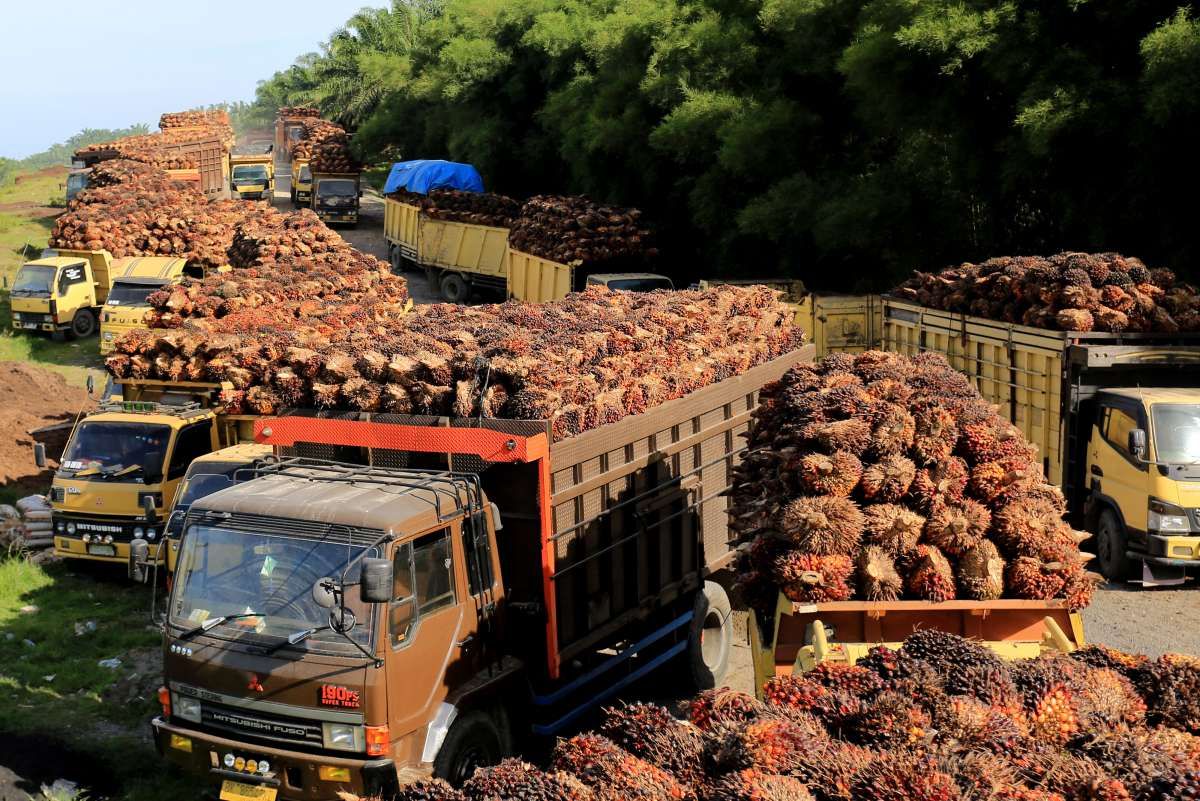The Tariff Shock: 32 Percent Import Duty Threatens Indonesia’s Palm Oil
Indonesia, the world’s largest exporter of palm oil, is facing significant pressure on its palm oil export performance due to a sharp increase in import tariffs imposed by key trading partners. A recent decision to introduce or increase duties—up to 32 percent—on palm oil imports in some global markets threatens to reduce demand for the commodity and weaken the country’s trade surplus.
For Indonesia, which exported more than 30 million metric tons of palm oil in 2024, this policy shift could have serious consequences on export volume, producer margins, and smallholder incomes. The export revenue from palm oil is a vital component of Indonesia’s foreign exchange earnings, particularly in regions like Sumatra and Kalimantan, where the crop is a cornerstone of local economies.
Key Markets Introducing Higher Import Tariffs
The most immediate concern stems from countries in South Asia and Europe, two regions that have historically been major buyers of Indonesian crude palm oil (CPO) and refined palm oil products. India, one of Indonesia's top palm oil importers, has periodically adjusted its tariff regime to protect local farmers and balance inflationary pressure.
Meanwhile, the European Union continues to intensify its scrutiny over palm oil due to sustainability concerns. The EU’s Deforestation-Free Products Regulation (EUDR) and upcoming environmental criteria could further constrain access to one of Indonesia’s largest premium markets. In response, some EU member states are introducing fiscal disincentives in the form of elevated duties.
Other countries may follow suit as global trade protectionism rises, particularly in the wake of inflation and food security concerns triggered by geopolitical instability and climate events.
Economic Implications for Indonesia
The palm oil export Indonesia industry contributes over USD 25 billion in annual export revenue, supporting millions of jobs directly and indirectly. With tighter margins and reduced access to major markets, Indonesia risks seeing a ripple effect that could:
- Lower smallholder income
- Reduce corporate profitability in the agribusiness sector
- Trigger a drop in export tax receipts
- Weaken the national trade balance
- Undermine downstream processing targets (such as biodiesel and oleochemicals)
Palm oil is not just an agricultural product in Indonesia—it is a strategic asset. Any major disruption in export performance can impact broader economic indicators, including the strength of the rupiah and inflationary trends in food products.
The Role of Government Policy in Mitigating Risks
In response to these rising challenges, the Indonesian government—through the Ministry of Trade and Coordinating Ministry for Economic Affairs—is considering several countermeasures, including:
- Bilateral trade negotiations to secure preferential access in key markets
- Diversification strategies targeting non-traditional buyers like Africa, the Middle East, and Central Asia
- Incentives for downstream products such as margarine, surfactants, and palm-based biofuels
- Sustainability certification acceleration, especially through ISPO (Indonesia Sustainable Palm Oil) to meet EU and global compliance
These proactive policies are intended to safeguard Indonesia’s global palm oil leadership while maintaining domestic social and economic stability.
Sustainability and Trade: The Double Challenge
The global palm oil debate is not just about tariffs—it is about trust. Sustainability, labor rights, and environmental stewardship are now central to trade relations. Countries increasing import duties are often motivated by concerns around:
- Deforestation and carbon emissions
- Labor exploitation and land conflict
- Lack of transparency in supply chains
To counter this narrative, Indonesian producers are now investing more in traceability systems, replanting with higher-yield varieties, and certification schemes. Several major exporters are also working with satellite data providers and blockchain platforms to verify the origin and sustainability of their products.
Nonetheless, the success of these efforts will depend heavily on international recognition and cooperation.
Long-Term Outlook for Palm Oil Exports
Despite the near-term risks, the global demand for vegetable oils—including palm oil—remains robust. Palm oil is the most land-efficient oilseed crop and is widely used in food, cosmetics, and renewable energy.
Analysts expect that after this short-term disruption, Indonesia’s palm oil sector will adapt and even emerge stronger by:
- Upgrading supply chains
- Investing in new processing capabilities
- Expanding export destinations
- Leveraging digital tools to assure sustainability
However, the current moment remains critical. Stakeholders across the industry—from regulators to exporters and farmers—must work collaboratively to navigate the palm oil export Indonesia ecosystem through this volatile policy environment.
Conclusion
The imposition of higher import tariffs on palm oil is a clear signal that global trade in agri-commodities is becoming more politicized and conditional. For Indonesia, the impact could be sharp—but not necessarily permanent. With strategic action, innovation, and stronger sustainability credentials, the country can protect its vital palm oil export base and even unlock new growth pathways.
What remains to be seen is how quickly the Indonesian palm oil industry can pivot—and how united it can remain in the face of growing external pressure.
Read More






 Saturday, 24-01-26
Saturday, 24-01-26







